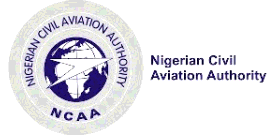 Nigeria’s Civil Aviation Authority Prioritises Passenger Experience During Customer Service Week 202
Nigeria’s Civil Aviation Authority Prioritises Passenger Experience During Customer Service Week 202
The Nigeria Civil Aviation Authority (NCAA) has placed a spotlight on passenger welfare and service excellence, marking Customer Service Week 2025 with a series of visible initiatives designed to enhance trust, safety, and satisfaction within the country’s aviation sector. This year’s activities, conducted in Abuja, reflected the evolving priorities of Nigeria’s aviation leadership and sent a clear signal to the wider industry about the importance of a customer-first approach.
Staff from the NCAA’s Consumer Protection and Public Relations units led the celebration, beginning with a well-publicised courtesy visit to the Director-General, Captain Chris Najomo. The delegation, steered by Director of Public Affairs and Consumer Protection, Michael Achimugu, and joined by General Manager, Business Education, Sylvia Pero, took the opportunity to express their appreciation for the Director-General’s commitment to building a safer, more responsive, and passenger-friendly aviation environment.
During discussions, Captain Najomo commended the renewed energy and dedication displayed by the Directorate’s team, highlighting the progress made in promoting robust consumer protection across Nigeria’s airports. He specifically acknowledged the leadership of Mr. Achimugu, pointing to his pivotal role in repositioning the unit for greater efficiency and in building public trust among travelers. This recognition highlights the ongoing shift in the regulatory approach—moving beyond compliance to embrace a culture that prizes direct engagement and transparent communication with the flying public.
The celebrations continued at the Nnamdi Azikiwe International Airport in Abuja, where the NCAA team took their mission directly to the heart of Nigeria’s aviation activity. Here, passengers experienced firsthand the NCAA’s commitment to service: staff interacted with departing and arriving travelers, shared vital information on passengers’ rights, and distributed branded souvenirs as tokens of appreciation. The lively atmosphere underscored the message that Nigerian aviation is evolving to meet the expectations of both domestic and international flyers.
These outreach activities are emblematic of a broader industry trend in Africa, where regulatory bodies are increasingly aware that passenger-centric strategies are essential for both growth and reputation. By confronting longstanding challenges—such as communication gaps, inconsistent customer service, and insufficient awareness of passenger rights—the NCAA is setting a standard that other African aviation authorities will likely need to meet in the years ahead. This orientation not only aligns Nigeria with global best practices but also caters to the continent’s youthful and rapidly growing air travel market.
For African travel professionals, these developments signal a new era of collaboration and opportunity. As passenger expectations rise, so too does the demand for seamless service experiences, transparent regulations, and rapid response to complaints. The NCAA’s initiatives during Customer Service Week are a case in point, demonstrating how proactive engagement can turn ordinary journeys into positive, memorable experiences—an outcome that benefits the entire aviation ecosystem, from airlines and airports to handlers and tourism operators.
Notably, the emphasis on consumer protection is not just a regulatory imperative but a key driver of business sustainability. In today’s competitive environment, travelers are more informed and increasingly likely to choose airlines, airports, and ancillary services that put their needs first. By empowering passengers with knowledge and offering visible support, the NCAA is helping to cultivate a loyal customer base that will underpin future airline growth, route development, and international connectivity.
Leadership within the NCAA continues to articulate a vision that bridges gaps between regulators and the flying public. The Directorate’s recent activities make it clear: consumer satisfaction is more than a statutory obligation; it is the foundation upon which Nigeria’s—and Africa’s—aviation success will be built. The message resonates across the continent, where a growing middle class, increased airline competition, and new infrastructure projects are converging to create one of the world’s most dynamic air travel markets.
For industry stakeholders, the lessons are both clear and urgent. As Nigeria’s aviation authority demonstrates, the future belongs to those who champion transparency, embrace innovation in customer engagement, and make passenger welfare a central mission. Success will depend on the ability to adapt to changing traveler profiles, respond swiftly to disruptions, and ensure that every touchpoint along the journey—from booking to baggage claim—reflects the values of safety, reliability, and genuine hospitality.
Looking ahead, the ripple effects of these initiatives are likely to extend beyond Nigeria’s borders. As more African countries invest in airport upgrades, digitalisation, and workforce development, the bar for service excellence will continue to rise. Partnerships between regulators, airlines, and other sector players will be essential to maintaining momentum and sharing best practices that can elevate the continent’s reputation as a world-class aviation hub.
Ultimately, the NCAA’s Customer Service Week 2025 activities stand as a strong reminder that passenger experience is at the heart of sustainable aviation growth. By putting people first and fostering a culture of appreciation and responsiveness, Nigeria is charting a course that will help secure its position as a leading destination and transit point for Africa’s next generation of travelers.
